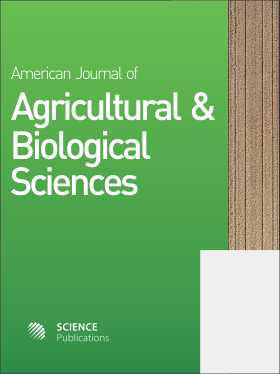Fungal Culture Systems for Production of Antioxidant Phenolics Using Pecan Nut Shells as Sole Carbon Source
- 1 Department of Food Science and Technology, School of Chemistry, Universidad Autonoma de Coahuila 25280, Saltillo, Coahuila, Mexico
- 2 Department of Food Science and Nutrition, Universidad Autonoma Agraria Antonio Narro, 25350, Buenavista, Saltillo, Coahuila, Mexico
Abstract
Problem statement: Many agro-industrial wastes have little or none utilization, when these materials could be a very rich source of several value-added compounds, such as: the pecan nut shells, which contain Antioxidant Phenolic (AP) molecules like tannins. Approach: In this study, a bioprocess for the liberation of AP from Pecan Nut Shells (PNS) was described. A chemical characterization of raw material was evaluated to determine polyphenolic content of PNS, among other components. Several fungal culture systems were evaluated at 96 h fermentation processes and using PNS as sole carbon source. Solid (SSC) and Submerged (SmC) fermentations were carried out using three strains of Aspergillus niger. Culture medium was composed of a solid (10-50%) and a liquid (90- 50%) part in order to complete the 100% of the medium. Results: A high concentration (19%) of tannins was found in PNS on a dry basis, from which condensed tannins and their monomers were found as the main fraction (14%) of tannins of PNS, also on a dry basis. In the strain selection step, Aspergillus niger GH1 showed better growth on pecan nut shells compared to A. niger PSH strain, therefore, A. niger GH1 was used for later experiments. The highest concentration of AP was obtained with SSC inoculated with spores of A. niger GH1 on the 40% of solids system and in 20% solids system where, among the other systems both presented 114 mg TP g-1 of phenolics liberation at 24 h of fermentation. PNS is an important source of catechin, being this kind of compound which can be liberated in higher proportion compared to other phenolics compounds. Conclusion: This study demonstrated that fermenting PNS represent a good alternative to both use residues and obtaining AP.
DOI: https://doi.org/10.3844/ajabssp.2010.397.402

- 6,630 Views
- 7,531 Downloads
- 8 Citations
Download
Keywords
- Pecan nut shells
- fungal culture systems
- antioxidant phenolics
- Solid and submerged fermentation
- Aspergillus niger GH1and PSH
